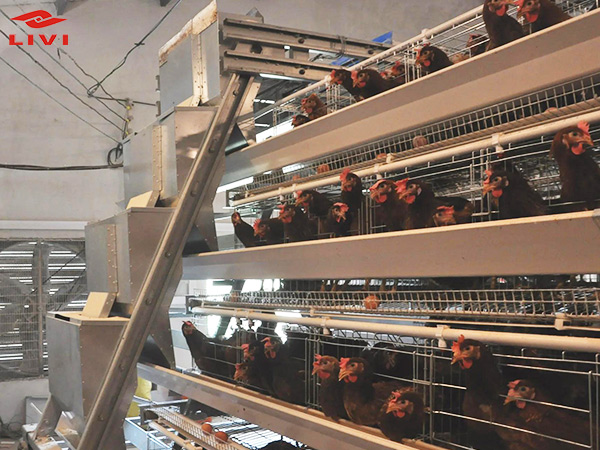Ghanaian farmers benefit from sustainable poultry farming with battery chicken cages
Ghana's poultry farming industry is undergoing a revolutionary change, driven by modern poultry farming equipment, the most eye-catching of which is the stacked chicken cage. The rise of this technology is already delivering impressive results, which bodes well for farmers and breeders in Ghana for sustainable development.
In traditional poultry farming, the problem of land occupation has always been a headache. However, Ghana has limited land resources and faces pressures from urbanization and competition for agricultural land. This has forced farmers to find more efficient farming methods to meet growing demand.
The advent of battery chicken cages in Ghana has changed the rules of the game. The core of this equipment are multi-layer vertical battery chicken cages that can be flexibly stacked together to maximize land utilization. Compared with traditional cage raising methods, battery chicken cages allow farms to significantly increase egg production and occupy less land.

But that's not the only benefit. battery chicken cages are often equipped with automated feed and water systems to ensure that the chickens receive adequate food and water. This kind of automation helps reduce feed waste, improve resource usage efficiency, and reduce breeding costs. At the same time, the sanitary conditions of these chicken cages are easier to manage, reducing sanitary problems that may occur under traditional breeding methods.
Moreover, the design of battery chicken cages in Ghana helps separate eggs and feces, reducing the risk of egg contamination. This means that the eggs produced are cleaner, safer and more in line with high-quality standards, further improving market competitiveness.
In Ghana, more and more farmers are beginning to realize the potential of stacked chicken cages and actively investing in this modern farming method. As demand for high-quality eggs continues to increase, this sustainable farming method provides farmers with the opportunity to achieve profitability. Additionally, it contributes to the sustainability of the agricultural sector, reducing resource waste and environmental pollution.
Overall, battery chicken cages in Ghana represent the future of poultry farming in Ghana. This technology has been successfully used on many farms, improving yields and benefits and reducing environmental burdens. As more farmers adopt this technology, Ghana's poultry farming industry will move in a more sustainable and prosperous direction, while providing more high-quality eggs to the market.









